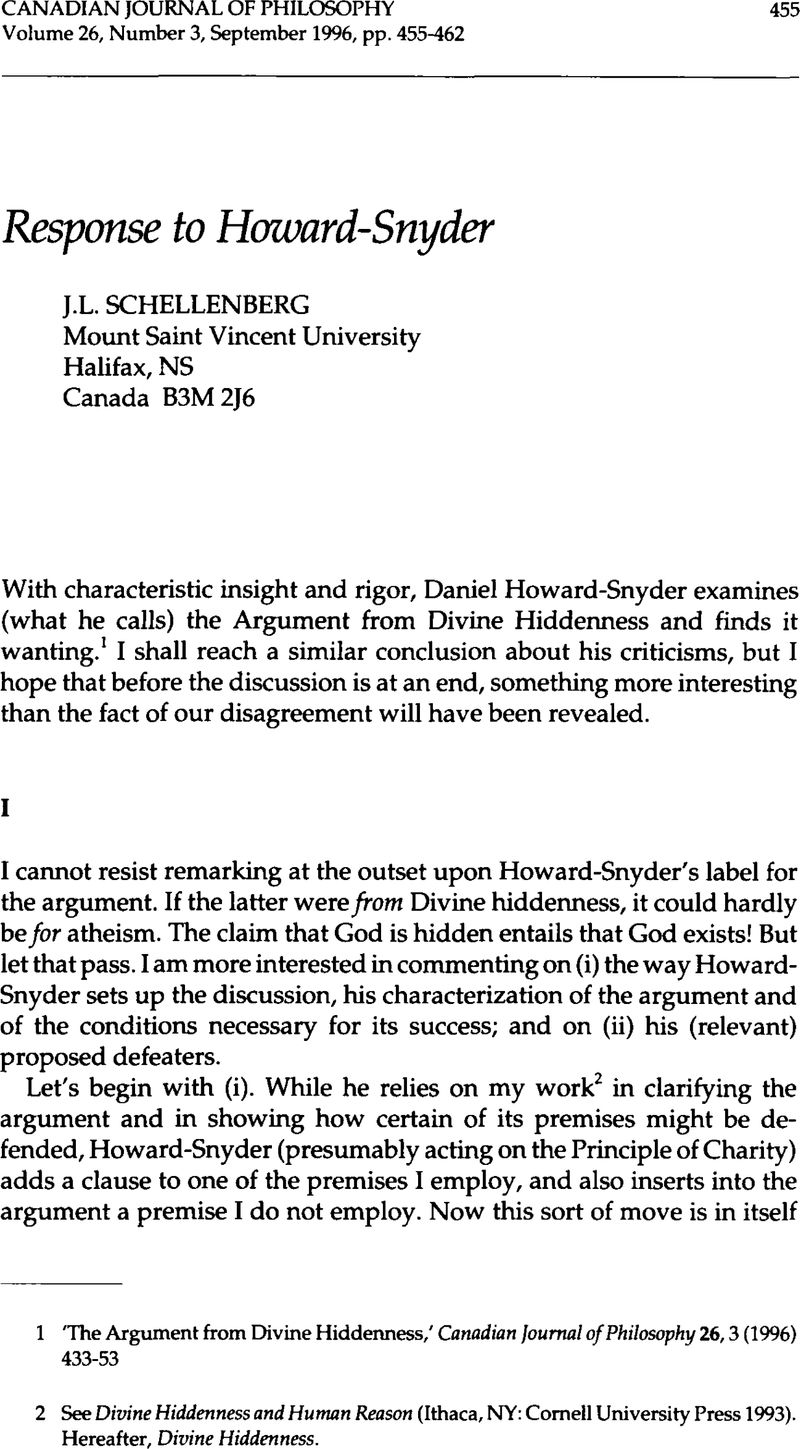Published online by Cambridge University Press: 01 January 2020

1 ‘The Argument from Divine Hiddenness,’ Canadian Journal of Philosophy 26, 3 (1996) 433-53
2 See Divine Hiddenness and Human Reason (Ithaca, NY: Cornell University Press 1993). Hereafter, Divine Hiddenness.
3 I have inserted the qualifier ‘inculpably’ here since it is required by the context and, presumably, intended by Howard-Snyder.
4 See, for example, Rowe's contributions to the volume edited by Howard-Snyder, : The Evidential Argument from Evil (Bloomington, IN: Indiana University Press 1996)Google Scholar.
5 A number of the papers appearing in The Evidential Argument from Evil, as well as quite a number not appearing in it, undertake to make this obvious; and I think the effort they represent has been attended with some success.
6 For simplicity of exposition, I leave tacit here (and hereafter) the reference to capacity for personal relationship with God.
7 The force of ‘independently’ here will be apparent shortly.
8 It may seem that I have belabored these structural points, but they are important. For if my way of structuring the argument is correct (or at least a legitimate alternative), then in the absence of available counter-considerations of the sort Howard-Snyder seeks to provide in later sections of his paper, the argument is successful, whereas on Howard-Snyder's interpretation, this would not follow.
9 Note that it does not follow from this that their counterparts in the actual world would certainly or very likely accept God.
10 There is even a sense of the absence of God compatible with belief, which may be more effective than any such sense prior to belief because of the accompanying poignant awareness of loss. The reader is referred to Part 2 of Divine Hiddenness-especially the discussion of Pascal — for a more thorough development of this and other arguments relevant to the assessment of Howard-Snyder's case.